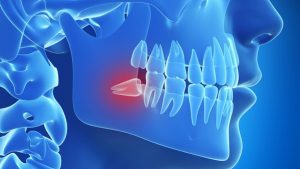Get Wiser About Wisdom Teeth
Wisdom Teeth
Have your wisdom teeth come in yet? Maybe they have and you’ve already gotten them removed. If so, you can rest on your laurels. We aim to inform those who still have their wisdom teeth, about all the details you may need to know about these teeth. They are historically powerhouses, but in recent times have had a lot of controversies. In our blog post today, we want to help you get wiser about wisdom teeth and make an informed decision on how to proceed with your teeth!
What Are Wisdom Teeth?
The wisdom teeth are a part of the third molar group that helps human ancestors crush plant tissue. Most adults have four wisdom teeth, each with four squares, but they may not be small or big, and in some cases called non-standard teeth. Wisdom teeth often grow strangely and are prone to affecting your other teeth. A majority of the population favors that they are removed immediately when they grow in. The skull of human ancestors is believed to have larger jawbones and more teeth, which may help bite the leaves to compensate for the lack of efficient digestion of the cellulose that makes up the plant cell wall. After the emergence of agriculture over 10,000 years ago, soft foods for humans, such as carbohydrates and high energy foods, became commonplace. This diet usually results in jaw bone growth more slowly than our Paleolithic ancestry, and there is not enough space to accommodate wisdom tooth.

How Do I know If My Wisdom Teeth Are Okay?
Painful wisdom teeth can occur for a variety of reasons. For example, when they grew in your wisdom teeth could have already been crooked. This means they are not suitable for entry into the mouth. Another possibility is that they have not been cleaned and are causing infection around the other teeth. Regardless of the cause, painful wisdom teeth will affect your overall oral health and should be treated immediately. Because of potential complications, hemorrhagic disease or other risk factors, tooth extraction is not suitable for some people. In these cases, your dentist may recommend pain management options. If you can not choose wisdom tooth extraction, your dentist may open a special mouthwash after a meal to clean the mouth and kill bacteria that may cause infection. Otherwise, if you are experiencing no pain after your mid-twenties, you may be just fine. If you are concerned though, please check with your dentist!
Why Do Dentists Recommend Surgery?
The purpose of getting rid of wisdom teeth is to avoid harming other healthy teeth. Usually, wisdom teeth burst vertically on the teeth next to each other (your second molar). That can cause severe damage to those teeth. Alternatively, when the wisdom tooth goes so horizontal, it removes your food from being able to be chewed and forms an area where food is trapped. This is a dangerous situation because it could create cavities and may cause even more painful infections.
Contact Us If You’re In Need Of Wisdom Teeth Removal!
Gentle Dental would love to help you remove your wisdom teeth, sometimes they are just too difficult to deal with. We understand and have all the proper equipment and certified doctors to make it happen. We’ll make sure the procedure is fast and effective. Come see us soon!
